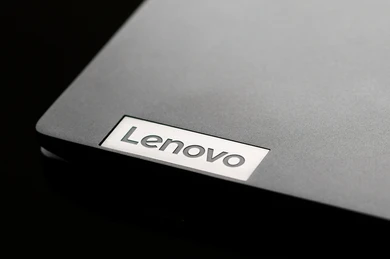India stands at the cusp of a technological revolution, with emerging innovations poised to redefine its economic landscape, societal structures, and global standing. The nation’s commitment to integrating advanced technologies is evident through strategic initiatives, substantial investments, and a burgeoning ecosystem of startups and research institutions. This comprehensive exploration delves into the future technologies shaping India’s trajectory, examining their current status, potential applications, challenges, and the road ahead.
Artificial Intelligence (AI) and Machine Learning (ML)
Artificial Intelligence and Machine Learning are at the forefront of India’s technological advancement. The nation’s vast IT industry, valued at approximately $250 billion, serves as a robust foundation for AI development. Prominent industrialists, such as Mukesh Ambani, have introduced AI-driven solutions like “JioBrain,” aiming to revolutionize various sectors within their conglomerates.
The Indian government has launched the “IndiaAI Mission,” a $1.25 billion initiative designed to bolster computing infrastructure, support startups, and facilitate AI research. This mission underscores India’s ambition to become a global hub for AI innovation.
A significant focus within India’s AI landscape is the development of AI tools and large language models (LLMs) tailored to the country’s diverse linguistic environment. Startups like Krutrim and Sarvam are at the forefront of creating AI solutions that cater to India’s multilingual population, enhancing accessibility and user experience.
However, challenges persist, including the need for substantial investments in computing power and infrastructure. Tech giants like Amazon and Microsoft have pledged significant investments to establish data centers and cloud storage facilities in India, addressing the surging demand for computing resources driven by AI technologies.
Quantum Computing
Quantum computing represents a paradigm shift in computational capabilities, and India is actively positioning itself within this domain. The National Quantum Mission, launched in 2023, aims to develop quantum technologies for secure communications, computing, and material simulations. This mission reflects India’s strategic intent to harness quantum technologies for national development.
Publications like “Quantum Nation: India’s Leap Into the Future” highlight the nation’s roadmap and the pivotal roles played by key figures in government, industry, and academia steering this initiative.
The Indian Space Research Organisation (ISRO) has demonstrated satellite-based quantum communication, marking a significant milestone for unconditionally secured satellite data communication. This achievement underscores India’s commitment to advancing quantum technologies for secure communications.
Blockchain Technology
Blockchain technology offers transformative potential across various sectors, including finance, supply chain, and governance. The Government of Telangana has established the Blockchain District in collaboration with IIIT Hyderabad, Tech Mahindra, and CDAC. This initiative focuses on protocol development, incubation, acceleration, skill development, and identifying use cases to position Hyderabad as a blockchain hub.
The Ministry of Electronics and Information Technology (MeitY) is actively exploring blockchain applications in governance, aiming to enhance transparency, efficiency, and trust in public services. This exploration includes developing frameworks and pilot projects to integrate blockchain into various governmental processes.
5G and Next-Generation Connectivity
The rollout of 5G technology is set to revolutionize connectivity in India, enabling faster internet speeds, low latency, and the proliferation of Internet of Things (IoT) devices. The government’s proactive approach includes spectrum allocation, infrastructure development, and fostering public-private partnerships to expedite 5G deployment.
The Ministry of Electronics and Information Technology (MeitY) is preparing for the integration of 5G, recognizing its critical role in the government and industry for planning, decision-making, and expediting development.
The advent of 5G is expected to catalyze advancements in various sectors, including healthcare, education, and agriculture, by facilitating real-time data transmission and enabling innovative applications.
Space Technology and Satellite Communication
India’s space endeavors, spearheaded by ISRO, have garnered global recognition. Future projects include the development of more powerful and less pollutive rocket engines, electric and nuclear propulsion for satellites, and the establishment of a space station where astronauts can stay for extended periods.
ISRO is also focusing on satellite-based quantum communication technologies to secure India’s future in computing and communications. This includes the development of quantum key distribution (QKD) technology to counter potential threats posed by quantum computers.
Collaborations with international partners, such as the joint study by Japanese and Indian startups on using laser-equipped satellites to tackle space debris, highlight India’s commitment to addressing global challenges in space technology.
Robotics and Automation
Robotics and automation are set to transform India’s manufacturing and service sectors. The integration of robots in industries aims to enhance productivity, precision, and safety. The Ministry of Electronics and Information Technology (MeitY) is preparing for the integration of robots, recognizing their critical role in various sectors.
The Future Technology Show, scheduled for December 2024 in Hyderabad, focuses on game-changing technologies such as robotics, providing a platform for industry leaders to explore and adopt these innovations.
The adoption of robotics in sectors like healthcare, agriculture, and logistics is expected to address challenges related to labor shortages, enhance efficiency, and improve service delivery.
Cybersecurity
As India digitizes rapidly, cybersecurity has become paramount. The government is investing in building robust cyber defense mechanisms.










